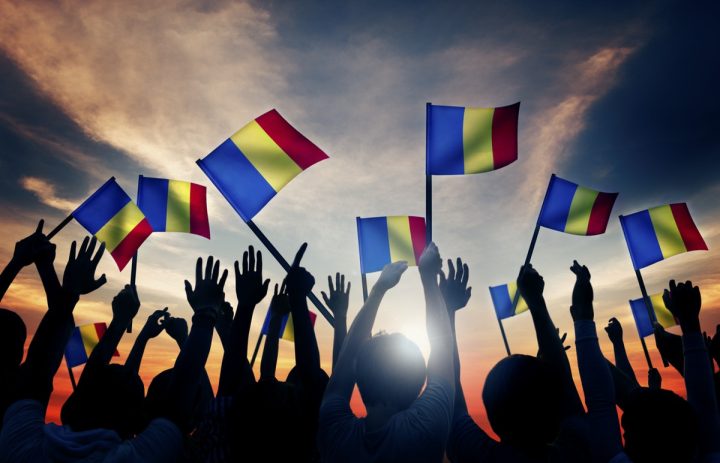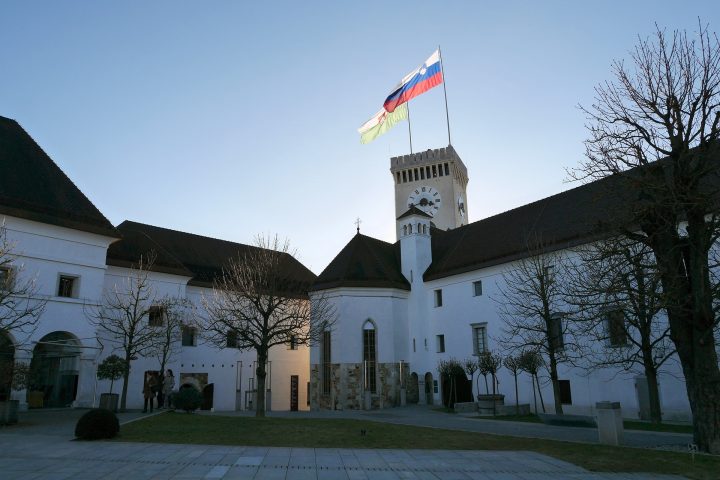European Ecommerce Overview: Bulgaria
Written by
Kinga EdwardsPublished on
Planning e-commerce in Bulgaria? Explore 2026 trends, shopper behavior, payment methods, social media impact, and logistics realities with up-to-date numbers.

Bulgaria is a Balkan country that borders Romania, Serbia, North Macedonia, Greece, and Turkey. It has access to the Black Sea, too, which is a big pro in the case of tourism. It is the sixteenth-largest country in Europe. Bulgaria is a member of the EU and NATO.
In this article, you will read about ecommerce in Bulgaria. What are consumers’ shopping habits? How do they prefer to pay? You will find answers to these and more questions below. Let’s start with a quick overview.
Bulgarian e-commerce overview
The Bulgarian e-commerce market is growing steadily as digital adoption deepens and online habits become more ingrained. For 2026, the total market size is estimated at a €3.57 billion, with a continued growth driven by rising internet penetration and smartphone use. Analysts forecast that Bulgaria’s e-commerce market could expand from about $2.9 billion in 2025 to over €10.09 billion in 2031.

This rise reflects broader shifts. Bulgaria joined the eurozone on January 1, 2026, which simplifies pricing and cross-border sales for both buyers and sellers — a big deal for online retailers selling into the country.
Top shopping categories in Bulgaria’s online economy mirror trends across Central and Eastern Europe. Consumer demand is strongest for:
- fashion and apparel,
- consumer electronics,
- and beauty & personal care,
with these categories pulling the most traction in 2026.

These segments benefit from visual appeal, frequent repeat purchases and strong social media interest. Local trend data also highlights food & drink, health products, and home & garden stores as important niches for e-commerce sellers.
For new or expanding e-commerce businesses, this means focusing effort on categories where Bulgarian consumers already show high purchase interest. It also means adapting product pages, imagery, and descriptions to mobile devices — which drive much of the traffic in online checkout flows.
Bulgarian consumers behavior
When we talk about Bulgarian e-commerce, it’s just as important to understand who is buying and why.
Bulgarian shoppers tend to be pragmatic and value aware. Research shows that practical incentives like free delivery and simple checkout are among the top factors influencing purchases. Over half of online buyers (52.1%) say free shipping influences their decision to complete a purchase, while strong interest in cash-on-delivery options and discounts also stands out.
Mobile commerce is front and center. Nearly two-thirds — about 63.46% — of all web traffic in Bulgaria comes from smartphones. This means many consumers browse and shop on the go. Conversion rates improve when retailers display delivery costs early in the funnel and keep forms short and simple.
Price sensitivity is real. Customers often compare offers extensively before they hit “buy,” and a clear return policy helps reduce hesitation at checkout. With Bulgaria joining the eurozone in 2026, price clarity becomes even more important — consumers instantly see prices in a familiar currency without conversion hassle.
Demographically, younger generations (18-34) tend to lead online activity, but older age groups are closing the gap as comfort with online shopping rises. Trends show that everyday items, apparel, electronics and personal care products are the most frequently purchased online. Cross-border shopping remains popular too, especially for categories where local inventory is limited.
Payment methods in Bulgarian e-commerce
Payments are central to a smooth Bulgarian e-commerce experience. As of 2026, the payment landscape reflects both traditional and digital preferences.
- Debit cards are the most widely used method, accepted by about 74% of Bulgarian online shoppers — a clear sign that local users embrace straightforward card payments for web purchases.
- Credit cards and digital wallets are also present – 38% and 27% accordingly – growing as more consumers adopt contactless financial tech
Security matters a lot here. Over half of Bulgarian consumers say they prefer online sellers that offer strong payment protections. It directly affects conversion rates.
Shops that display SSL badges, trusted third-party processors or secure checkout notices tend to win trust faster and see fewer abandoned carts.
Another key trend is the ongoing popularity of cash-on-delivery (COD) as an option for e-commerce orders. Even as digital adoption grows, a significant portion of buyers still chooses COD, especially for first-time purchases or higher-value items. Free or low-fee COD options can boost sales and confidence among hesitant shoppers.
With Bulgaria now using the euro, this further harmonizes payment expectations with other EU markets. For international sellers this means a smoother checkout experience without currency conversion friction
Social media in Bulgaria
When we talk about Bulgarian e-commerce, social media is an engine of discovery, inspiration, and conversion.
In late 2025, Bulgaria had roughly 4.50 million active social media user identities, which is about 67.1% of its population. Roughly 77.1% of internet users were on at least one platform in October 2025, making social channels indispensable for brands.
Here’s how social platforms shape online commerce:
- Facebook remains the powerhouse. In 2025 its reach translates into 3.60 million users. Its ad reach was equivalent to 53.7% of the total population at the end of 2025. That’s huge — especially for product launches, community building and remarketing.
- Instagram hits fashion, beauty and lifestyle products especially well. There are around 1.95 million users.
- TikTok is the breakout star. It hit 2.63 million users aged 18+, roughly 45% of internet users — excellent for impulse buying and trending items.
- YouTube doubles as a search and discovery tool. It reaches 4.50 million users, meaning video content should play a role in product storytelling and education.
- LinkedIn is smaller (about 1.60 million “members”) but useful for B2B and logistics partnerships, less so for direct B2C sales.
These numbers tell a clear story: social commerce is central to Bulgarian e-commerce in 2026.
Whether you’re building awareness, capturing leads, or driving conversions, social channels are where your audience is both browsing and buying.
What does this look like in practice?
- Short, mobile-friendly videos and reels boost engagement and sales.
- Influencers on TikTok and Instagram help localize foreign brands.
- Ads that blend discovery (top of funnel) with direct purchase actions (like “shop now”) reduce friction.
If you’re targeting Bulgarian e-commerce next year, plan your content rhythm around social channels — not as an afterthought, but as a core sales driver.
Bulgarian logistics — the backbone of online shopping
Great products and great marketing mean nothing without a solid logistics strategy. For Bulgarian e-commerce, logistics goes far beyond mere delivery.
Here’s what you need to know about how logistics works for online shopping in this market in 2026:
Customer expectations and delivery performance
Bulgarians who shop online expect transparent, predictable delivery:
- Many expect delivery within 4-5 days for cross-border shipments from Western Europe. That’s a reasonable baseline expectation if you’re selling into Bulgaria from abroad.
- Poor delivery performance is one of the main reasons shoppers abandon carts or seek alternative sellers. That means clear tracking updates, delivery windows, and upfront cost communication are essential.
Fast shipping is becoming a competitive advantage. As e-commerce matures across Europe, so do expectations. By 2026, express delivery and closer fulfilment hubs (like micro-fulfilment centres near big cities) are no longer futuristic options — they’re expectations for repeat customers.
Local parcel pick-up points and automated lockers are also on the rise. For sellers reaching Bulgaria from abroad, partnering with couriers or PUDO networks that provide these options can shorten delivery times and give shoppers convenient collection options.
Cross-border logistics realities
Since Bulgaria joined the eurozone on January 1, 2026, currency barriers are gone, but logistics remains the most critical operational hurdle for foreign brands.
- International carriers will often deliver within 4-6 business days if you optimise routes and partner with the right local networks.
- Using carriers that handle both COD and returns simplifies customer service and reduces friction at checkout.
For sellers eyeing Bulgaria, the logistics takeaway is simple: don’t underestimate delivery experience.
Predictability beats cheapness — customers are more likely to repurchase if their order arrives on time and intact with clear tracking.
Tech and automation
The logistics field for e-commerce across Europe is innovating rapidly in 2026. Automated warehousing, AI-driven fulfilment planning, and smarter routing are part of staying competitive.
Even if you start with smaller operations, think about:
- Real-time tracking integrations.
- Return handling automation.
- Partnerships with last-mile specialists.
- Logistics tech that connects your shop to carriers efficiently.
Last words
2026 could be the year Bulgaria clicks on the broader e-commerce map.
The fundamentals are there:
- A digitally connected population with millions of social media users who actively discover and buy online.
- Clear opportunities in logistics and fulfilment — from COD to predictable delivery — that reward smart operational planning.
- A market where social media and digital channels are intertwined with shopping behaviour, meaning brands that show up where consumers spend time have an edge.
For sellers already in the EU, Bulgaria’s entry into the eurozone removes currency headaches and aligns it more with the larger European market.
Yes, the market isn’t massive compared to Western Europe. But that’s precisely its charm: moderate competition and growing digital adoption make it easier for newcomers to gain traction if they build a smart strategy from day one.
Here’s your action checklist for 2026:
- Map your social strategy: Use Facebook and Instagram for consistent engagement and TikTok to reach new audiences.
- Dial in logistics: Partner with carriers who can deliver reliably, offer COD, and communicate every step.
- Mobile-first design: Ensure your checkout and content are seamless on smartphones — this is how most Bulgarians shop.
- Think experience, not just price: Transparent delivery costs, returns policies, and tracking build trust faster than discounts.
If you are not convinced about Bulgarian e-commerce, you can read articles about other European countries such as Croatia, Slovakia or Spain.


